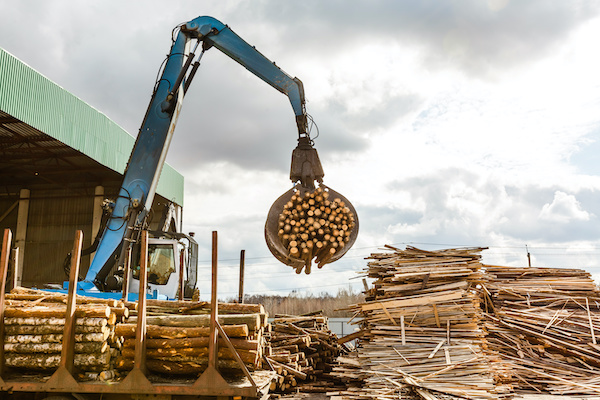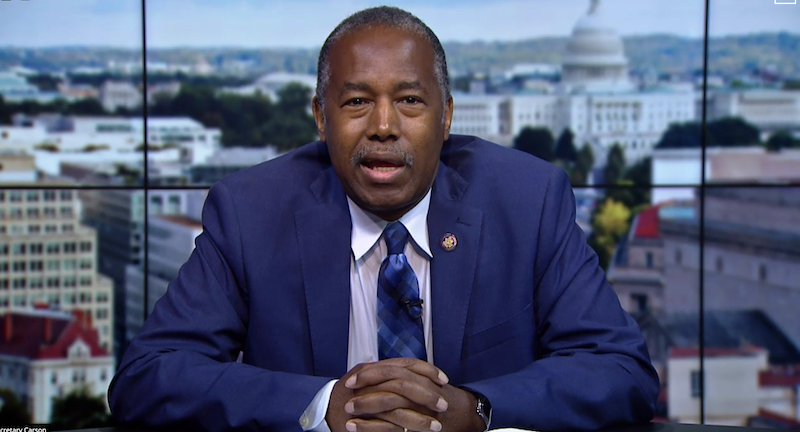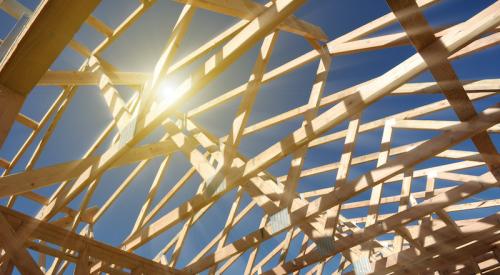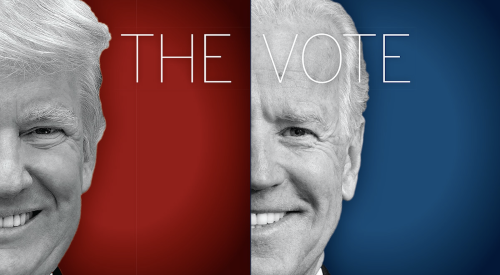On Sept. 24, U.S. Secretary of Housing and Urban Development Dr. Ben Carson spoke to members of the National Association of Home Builders (NAHB) about HUD's actions to address affordable housing and steps taken to ease the effects of the coronavirus pandemic on homeowners.
“As we continue through this great national challenge, our mission of creating strong, sustainable, and quality communities for all is all the more urgent,” said Carson in his opening statement. “To do so, we have a core strategy that focuses on deregulation, revitalization, and innovation.”
NAHB leadership followed Carson's 10-minute address with questions to specify how HUD can or might take action regarding current building material shortages and the impacts of recent natural disasters—topics Carson did not outwardly address in his opening remarks.
RELATED
- NAHB Addresses Rising Lumber Prices, Builder Concerns
- The Weekly: Interview with NAHB Chairman Chuck Fowke
- Ben Carson on Affordable Housing and Private-Sector Collaboration
- NAHB Addresses White House Stance on Fair Housing
Affordable Housing
To begin, Carson addressed the new Preserving Community and Neighborhood Choice rule, which replaced the Obama Administration’s Affirmatively Further Fair Housing (AFFH) rule, a provision of the 1968 federal Fair Housing Act.
AFFH allowed for more federal action to ensure the purposes of the Fair Housing Act. For example, if communities receiving HUD funding did not enact changes to discriminatory zoning, that funding would be at risk.
Those in opposition of the AFFH believe that the federal government should not have a say in the housing of independent communities; rather, that those communities should make their own decisions when it comes to housing.
AFFH also garnered attention from a tweet by President Trump on July 29, which stated, “I am happy to inform all of the people living their Suburban Lifestyle Dream that you will no longer be bothered or financially hurt by having low income housing built in your neighborhood … .”
I am happy to inform all of the people living their Suburban Lifestyle Dream that you will no longer be bothered or financially hurt by having low income housing built in your neighborhood ...
— Donald J. Trump (@realDonaldTrump) July 29, 2020
While agreeing AFFH was burdensome, NAHB second vice chairman Jerry Konter expressed how many NAHB members were “deeply offended” by Trump’s remarks and requested Carson clarify the comments in the tweet.
“A lot of people did take the President’s comments, I think, the wrong way,” Carson responded. “Basically, what we had noticed in trying to work with the AFFH rule was that it was very cumbersome and basically imposed on local jurisdictions the federal government’s ideal of what their neighborhood should look like.”
Foreclosure and Eviction Moratoriums
On Aug. 27, the Federal Housing Administration (FHA) announced the third extension of its foreclosure and eviction moratorium in response to economic hardships from COVID-19; the moratorium now extends through Dec. 31, 2020 for homeowners with FHA-insured single-family mortgages.
“Homeownership is the largest wealth builder for the majority of our nation’s families,” said Carson in his statement to NAHB. “By providing this relief from foreclosure and eviction due to circumstances beyond their control is a priority for HUD.”
FHA financing is an important component of new-home sales for many builders, and with nearly 10% of FHA and Veterans Affairs-backed mortgages currently in forbearance, money available through the federal Mutual Mortgage Insurance Fund (MMIF) is of utmost importance to mitigate defaults on those loans.
Homeownership is the largest wealth builder for the majority of our nation's families.
Carson reiterated his confidence in the MMIF and its ability to withstand effects of the moratoriums. In 2019, the MMIF achieved its highest level of funding in 13 years.
Along with the moratoriums and federal mortgage insurance to protect them, homeowners can also apply for a "partial claim" loan through HUD to reinstate a delinquent home loan, which will only come due once the entire original mortgage loan has been repaid.
“You’ve been hearing for the last six months about the disaster and all the people who are gonna be thrown out [of their homes],” Carson said. “You notice it hasn’t happened yet. That’s because we’ve been working extremely hard to find ways to keep people in their homes. Partial claim has been very helpful. People who cannot, for financial reasons, secondary to the coronavirus, can tack those payments onto the end of their regular mortgage, interest-free.”
Among multifamily builders, there is a fear that without a robust rental assistance program, occupants will not be able to repay rent owed. NAHB third vice chairman Alicia Huey expressed fears that this financial hardship will push multifamily communities into default. For renters and housing providers, Carson says funds have been “depleted” and more congressional authority will be needed to address this matter.

Lumber and Materials Shortages
Though Carson did not address it in his statement, NAHB chairman Chuck Fowke outlined for him the issue of softwood lumber shortages that are drastically affecting the home building industry. Lumber prices have spiked 170% since mid-April, increasing new-home building costs by nearly $16,000 and pricing millions out of the market, according to NAHB estimates.
While crediting the housing market as a bright spot in an uncertain U.S. economy, Fowke warned that if the issues persists, the industry will slow down.
“NAHB is urging U.S. lumber producers to ramp up production and asking the Trump Administration to engage Canada in trade discussions to remove the tariffs on Canadian lumber shipments,” Fowke said. “We hope you can bring this message back to your colleagues and administration, and elevate the urgency of this housing issue on behalf of renters, homebuyers, and builders.”
In response, Carson said he would elevate the issue, then moved on to further questions.
Natural Disasters and Rebuilding
The devastation caused by Hurricane Sally in the Gulf Coast and historic wildfires across the West encompassed the loss of thousands of structures, including businesses, homes, and jobsites.
Once Congress takes the appropriate action to address the rebuilding effort, Carson said, funds from various federal sources will be allocated using data from both the Small Business Association and the Federal Emergency Management Association.
“We always will continually be working to safeguard the homes, which are the major investments of American citizens, throughout this nation,” Carson said.













